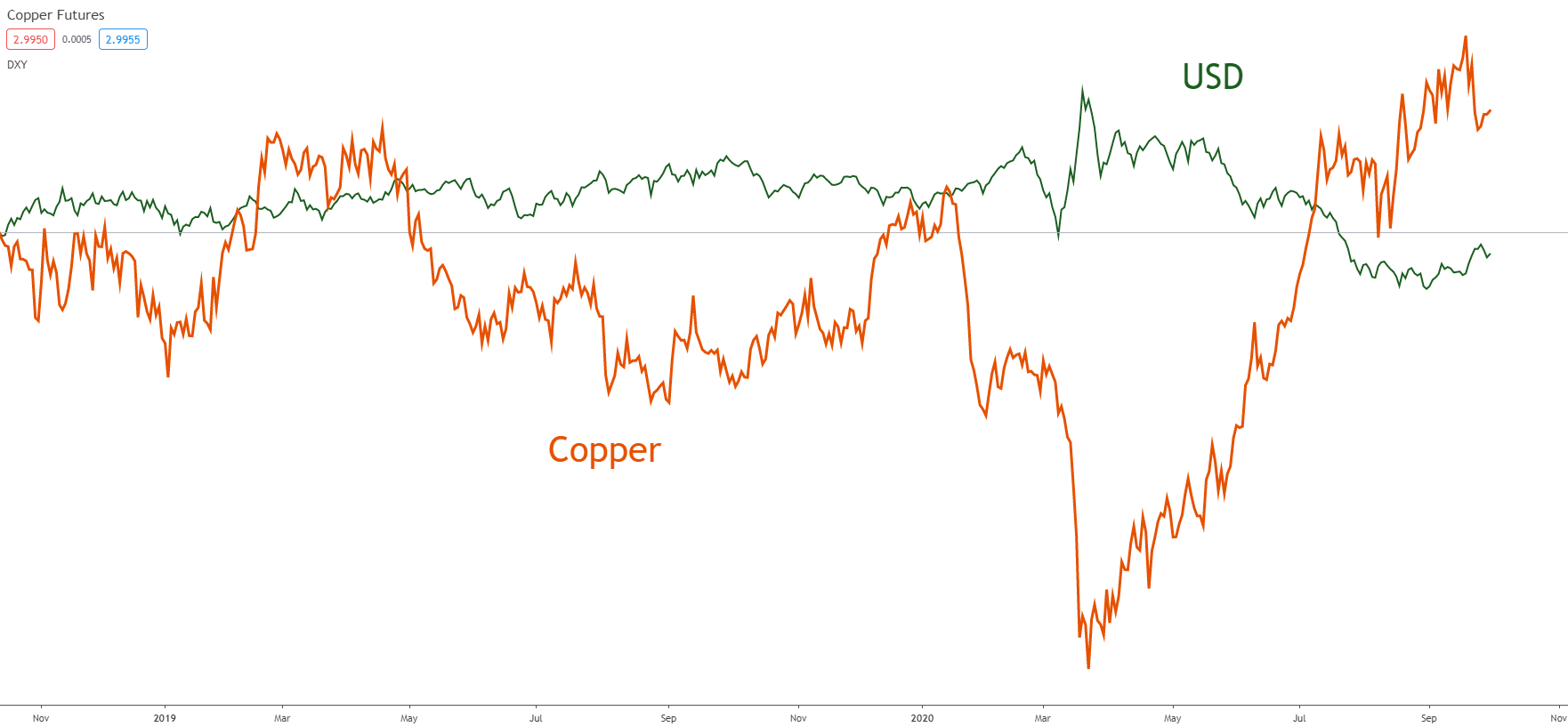Copper, a ubiquitous metal renowned for its electrical and thermal conductivity, plays a crucial role in various industries, including construction, energy, and electronics. As a result, copper’s price volatility has attracted the attention of investors seeking to capitalize on market fluctuations. Options trading presents a lucrative avenue, offering opportunities for risk-averse and speculative traders alike.

Image: www.dailyfx.com
An option contract grants the buyer the right, but not the obligation, to buy or sell an underlying asset at a specified price, known as the strike price, on or before a predetermined expiration date. In the context of copper trading, investors can opt to buy (call option) or sell (put option) copper futures contracts at the designated strike price.
Understanding the Mechanics of Copper Options Trading
To understand copper options trading, it’s essential to grasp a few fundamental concepts. The contract size for copper options is set at 25,000 pounds of copper, and each contract has a specific expiration date. The premium, the upfront cost of the contract, determines the right to exercise the option. Higher premiums result from higher volatility in copper prices or longer contract durations.
Traders can choose from various option strategies, ranging from basic to complex. For instance, a call option allows the buyer to purchase copper at a fixed price, while a put option gives the buyer the option to sell copper at a specified price. Additionally, combination strategies offer more nuanced trading approaches, empowering traders to create customized positions tailored to their risk appetite and profit objectives.
The Allure of Copper Options Trading
The allure of copper options trading stems from its ability to provide multiple benefits:
- Price Volatility: Copper’s price fluctuations present opportunities to speculate on market movements, potentially leading to substantial gains.
- Flexibility: Options offer the flexibility to adjust positions based on changing market conditions and adapt to risk tolerance.
- Capital Efficiency: Compared to purchasing the underlying copper directly, options trading requires less upfront capital, enhancing its accessibility for traders with varying investment portfolios.
- Risk Management: Options can be used as a risk management tool to protect existing positions or manage exposure to price fluctuations.
The Art of Successful Copper Options Trading
While options trading can yield lucrative returns, it’s crucial to approach this endeavor with a prudent mindset and a thorough understanding of the risks involved. To increase the odds of success:
- Thoroughly Research Market Dynamics: Delve into the underlying factors influencing copper prices, including economic growth, supply and demand dynamics, and geopolitical uncertainties.
- Assess Risk Tolerance: Determine an appropriate level of risk for your investment portfolio. Options trading can amplify both gains and losses.
- Choose Trading Strategy: Select an options trading strategy aligned with your risk tolerance and profit objectives. Consider your preferred holding period, market outlook, and risk-reward ratio.
- Market Timing: Timing is essential in options trading. Track copper price trends, economic indicators, and geopolitical events to optimize entry and exit points.
- Discipline and Patience: Adhere to your trading strategy and exercise patience. Avoid impulsive decisions and focus on long-term profitability.

Image: www.tradingview.com
Copper Options Trading
Conclusion: Embracing the Copper Options Trading Frontier
Copper options trading presents a unique opportunity for investors seeking to tap into the dynamic copper market. By understanding the mechanics, embracing smart trading practices, and managing risk effectively, traders can unlock the potential of this financial instrument to potentially enhance returns and navigate market complexities.






